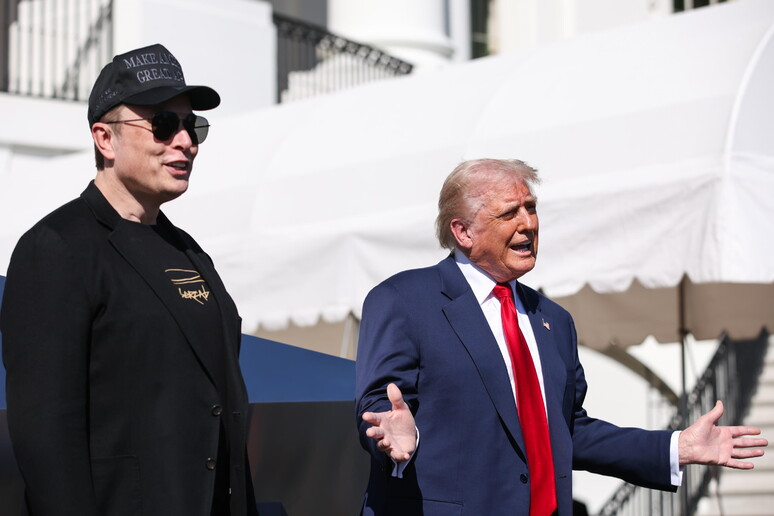When a bromance breaks, the fallout can be dramatic. U.S. President Donald Trump has called the decision of his former ally, billionaire Elon Musk—the world’s richest man—to start his own political party, the America Party, “ridiculous.” But can Musk really pose a threat to the Republican Party? Probably yes.
“I think starting a third party is ridiculous. We’re having tremendous success with the Republican Party,” Trump said in response to a reporter’s question before boarding Air Force One in Morristown, New Jersey. “The Democrats have lost their way, but it has always been a two-party system, and I think creating a third party just adds confusion.”
He then expanded at length in a post on his social media platform, Truth Social: “I am saddened to watch Elon Musk go completely ‘off the rails,’ essentially becoming a TRAIN WRECK over the past five weeks,” the president wrote. “He even wants to start a Third Political Party, despite the fact that they have never succeeded in the United States. The one thing Third Parties are good for is the creation of Complete and Total DISRUPTION & CHAOS.”
He added that Musk is acting out of frustration over the White House’s intent to halt subsidies for electric vehicle purchases. Trump further accused the billionaire of seeking improper influence, noting Musk had attempted to get his friend Jared Isaacman nominated as NASA administrator. The nomination was withdrawn after Musk stepped down from his special government role in the Trump administration. “I also thought it inappropriate that a very close friend of Elon, who was in the Space Business, run NASA, when NASA is such a big part of Elon’s corporate life,” Trump wrote. Currently, NASA relies on both Boeing and Musk’s SpaceX, the having receiving $22 billion in federal spending.
Indeed, Musk could pose a real challenge in the run-up to the 2026 midterm elections.
The tech billionaire announced the creation of the America Party in a series of posts from Saturday night through Sunday morning on X, the social media platform he owns. His posts suggested the party will focus on two or three Senate seats and eight to ten House seats. Both chambers of Congress are currently narrowly controlled by Republicans. Musk’s goal, then, seems to be acting as a kingmaker—a role that, as countries with multiparty systems know well, allows small groups to wield significant power. “Given the razor-thin legislative margins, that would be enough to be decisive on the most controversial laws, ensuring they reflect the true will of the people,” Musk wrote.
He gave few details about the party’s timeline or structure. He certainly doesn’t lack influence, economic or otherwise. It’s estimated he spent over $275 million of his personal fortune helping Trump win a second term in last November’s presidential election. The bromance between them, born in the final stretch of the presidential campaign, culminated in Musk being named in January to head the DOGE, a kind of super-ministry supposedly focused on “government efficiency,” aimed at slashing public spending. Over just four months, he used an axe to dismantle significant parts of the federal apparatus. The breakdown came partly because two strong personalities—or rather, two highly arrogant men—were bound to clash, and partly because Musk could not stomach Trump’s “big, beautiful bill,” which the Congressional Budget Office says will increase the national deficit by $3.3 trillion by 2034.
The bill, now law, provides major tax cuts for the ultra-wealthy while slashing federal social safety net programs, potentially leaving up to 16 million people without health insurance. It also includes cuts to sectors crucial to Musk—such as EV subsidies. Tesla’s stock has suffered as a result.
Also on Sunday, Trump’s Treasury Secretary Steve Bessent—albeit a bit late to the game—stated that Musk should focus on managing his companies and stay out of politics. “The principles of DOGE were very popular—I think if you look at the polling, Elon was not,” he said on CNN’s State of the Union. Bessent also hinted that investors in Musk’s companies—including Tesla, whose EV sales declined as DOGE operated—had publicly urged him to limit his role in the Trump administration.












